Are my happy endings unrealistic?
I’m going to admit that this was sparked by a recent review of The Lotus Palace in Publishers Weekly (link to review — wow, my cover looks awesome up there), which hit upon some things I’ve been reflecting upon lately.
A common criticism that my romances receive is that the endings are unrealistic, clichéd, convenient. It seems that the other stuff, the research and the details and the character interactions pass inspection, but not the endings.
As a romance author, if your endings are dead in the water, you’re dead.
But this sprouts a whole host of questions in me as an author who wishes to say something and say it in a way that communicates with as many people as possible:
- Are my happy endings unrealistic because I have failed to execute?
- Are my happy endings unrealistic because they are perceived to be anachronistic for the time period?
- Are my happy endings unrealistic, but in line with the genre I write in? (In which case, unrealistic, but expected?)
- Are my happy endings perceived as more unrealistic than other comparative works that are set in familiar Western settings because imperial China is perceived as more harsh, primitive, unyielding than Western culture?
- Is it harder to envision a happy ending in an alien or “other” culture because HEA is tied intimately to ideas of comfort, safety and familiarity where the “other” is inherently not comfortable, safe or familiar?
The questions continue and continue.
So, there are too many questions to answer in one blog post. In fact, I think this ongoing list of questions constitutes the principle driving force of my romance writing career. I’ve written five novels in an attempt to ask and answer that question for myself. If I’m lucky, I’ll write at least five more novels and the question will still not be answered.
(BTW, I’m Buddhist by upbringing and by thought. I find that Buddhists like that there are questions and are content that questions are reflected upon, even if there are no answers. This, by the way, I’ve identified as problematic in terms of aligning my world view with writing mainstream romance with satisfactory endings. HEA is very much a definitive answer.)
What I’m providing here is my philosophy of happy endings. It’s interesting to me, because it poses the question, “Is true love really timeless?” and “Can love break down all barriers?”
On top of that, because I write in the time period that I do and with Asian characters, there’s the added question of, “Can readers accept the same leap of faith for unfamiliar characters that they do for familiar ones?” In other words, “Are Chinese heroes and heroines allowed their fairytales too?”
People often ask me, “Do you feel you write historically accurate stories?”
For once, I’m going to abandon my very Buddhist response of, “What is history? What is fact? There is no truth. Every historical record is a retelling. Every point of accuracy is in itself, a story.”
Instead, I’m going to answer this way: “Yes.”
Here’s why: The story of Zheng and the Sing-song Girl. (Here’s a link to a nice translation.)
Do I write a love story that happened commonly in the Tang Dynasty? — You may say no. Because Chinese culture was so strict. Back then, people didn’t cross social boundaries. Back then, back then…
An interesting tidbit. The story of Master Zheng and Li Wa the Sing-song girl was written in the Tang Dynasty. Even though it is presented as fact, it was a fable written in the same time period that I’ve embraced. It tells the story of a gentleman, a scholar, who goes to the capital to take the imperial exams and make a name for himself, but is led into ruin by a crafty courtesan. But wait! After trials and tribulations, she helps him get back on his feet and supports him as he studies for the exams. In the end he passes, but when he wants to marry her, Li Wa refuses. She’s beneath him now. She’s wronged him.
In the story, the family comes out in favor of the marriage and urges Zheng to marry the girl who helped him turn his life around. In fact, it’s Zheng’s father that arranges the marriage for his son. They do indeed marry and their romance is celebrated by all. As a sign that Zheng made the right choice, there’s even an HEA epilogue! He goes on to be promoted to all sorts of exalted posts. They have four sons who all go on to do great things.
This story was hugely popular in the Tang Dynasty. It survives to this day. It has a happy ending against all odds.
This is my “Cinderella” tale.
A common analysis of the tale is that it represents a male fantasy. Young scholars were often tied up in arranged marriages of their family’s choosing. The story of Zheng and others like it represent the desire these scholars had for romantic love. To be able to have the women they wanted versus what society dictated.
So are my romances historically accurate?
They are historically accurate fairy tales, that reflect the romantic notions of the time period in which they are set—the Tang Dynasty. What’s more, they represent the romantic ideals of the power elite—at least when these men were young and free.
It is my hope that these historical stories I write might also speak to the modern reader in a way that rings true. That they might add to the argument that romantic love…or at least the desire for romantic love…is timeless.
A final bit of trivia is that the story of this young man and his sing-song girl was penned (or should I say brushed?) by a scholar in the year 795 AD, supposedly about an ancestor of his that had lived in that Tianbao period (742-756 AD). The author’s name was Bai Xingjian, alias Zhitui, who was the great poet Bai Juyi’s brother.
This would also make him an ancestor of Bai Huang, the hero of The Lotus Palace. Another wayward soul, in the tradition of his ancestors, who happens to fall for a girl beneath his class. This is my homage, my little Easter Egg.
Both the story of Zheng as well as Bai Juyi are mentioned off-hand in the text of The Lotus Palace. It’s not as recognizable as quoting Shakespeare or Austen in a Regency, but dag nabit, it should be. Sometimes when I’m alone at night (as I am now) I wonder if part of the challenge is that I’m writing these stories as a somewhat isolated voice.
Would readers be more accepting if I could reference Shakespeare and Austen? If there were comparative works by fellow authors that either supported or refuted mine? Reading romance is in many ways a social endeavor, a community activity, a shared experience. The body of works at large constitute an ongoing conversation.
There are problems mentioned here that are beyond me and that I cannot solve. But there is value in pondering these questions, at least I believe so.
So when such criticisms arise, this is how I take them. I tell myself: “My path is true, but sadly I did not convince. Try harder next time.”


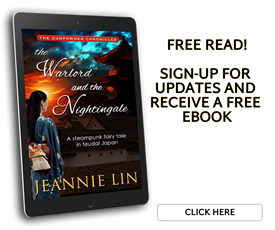
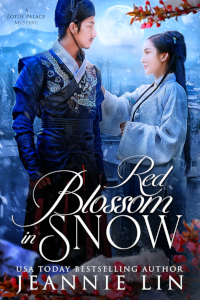
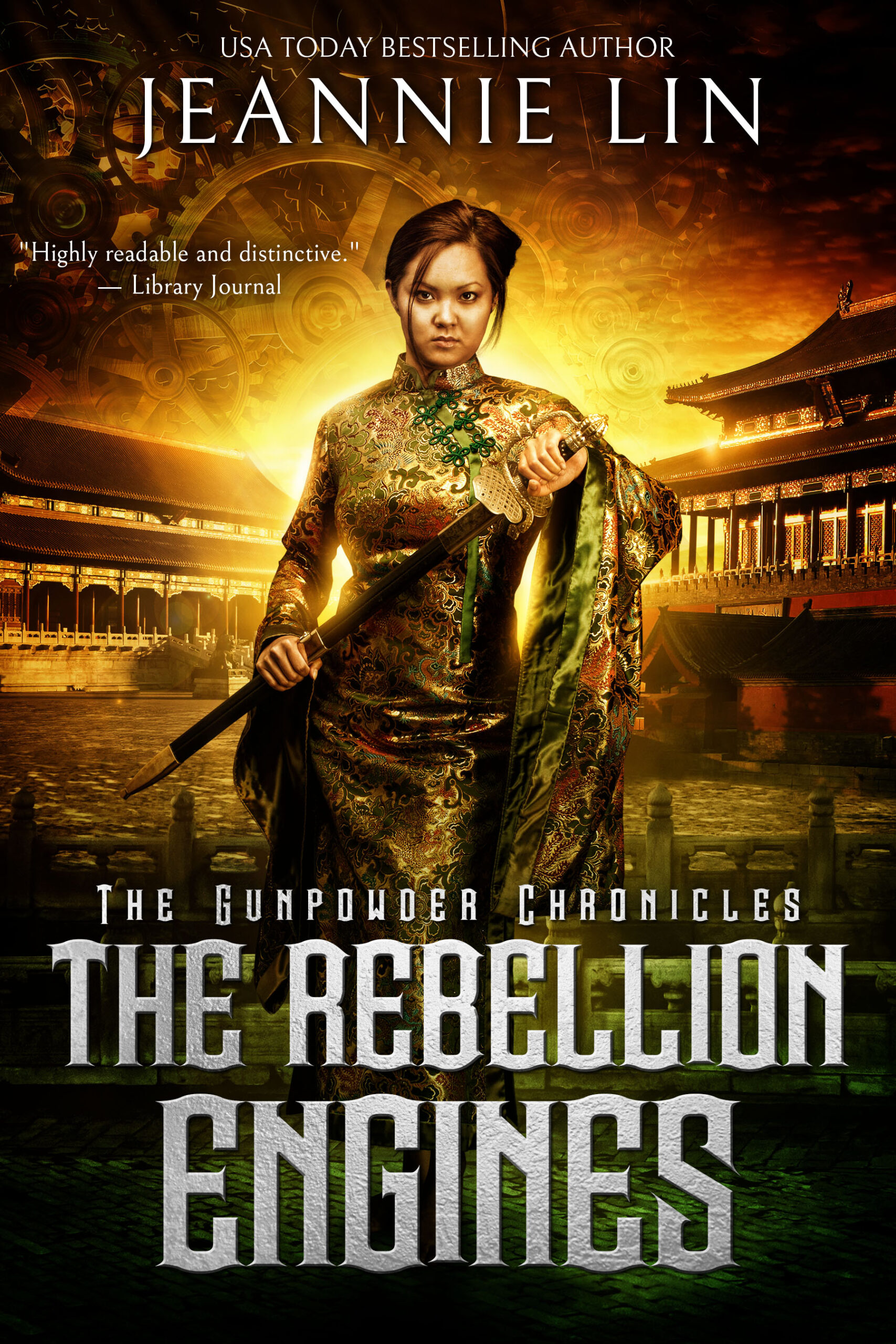
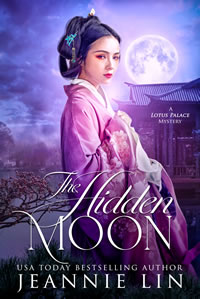
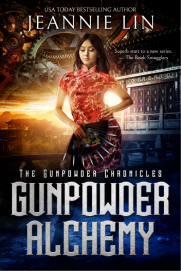
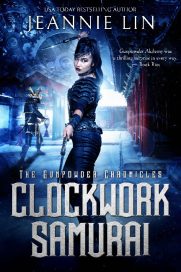
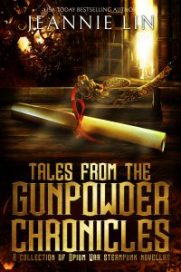
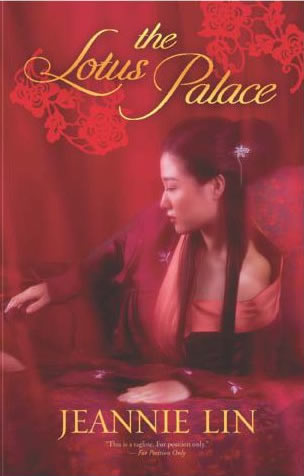
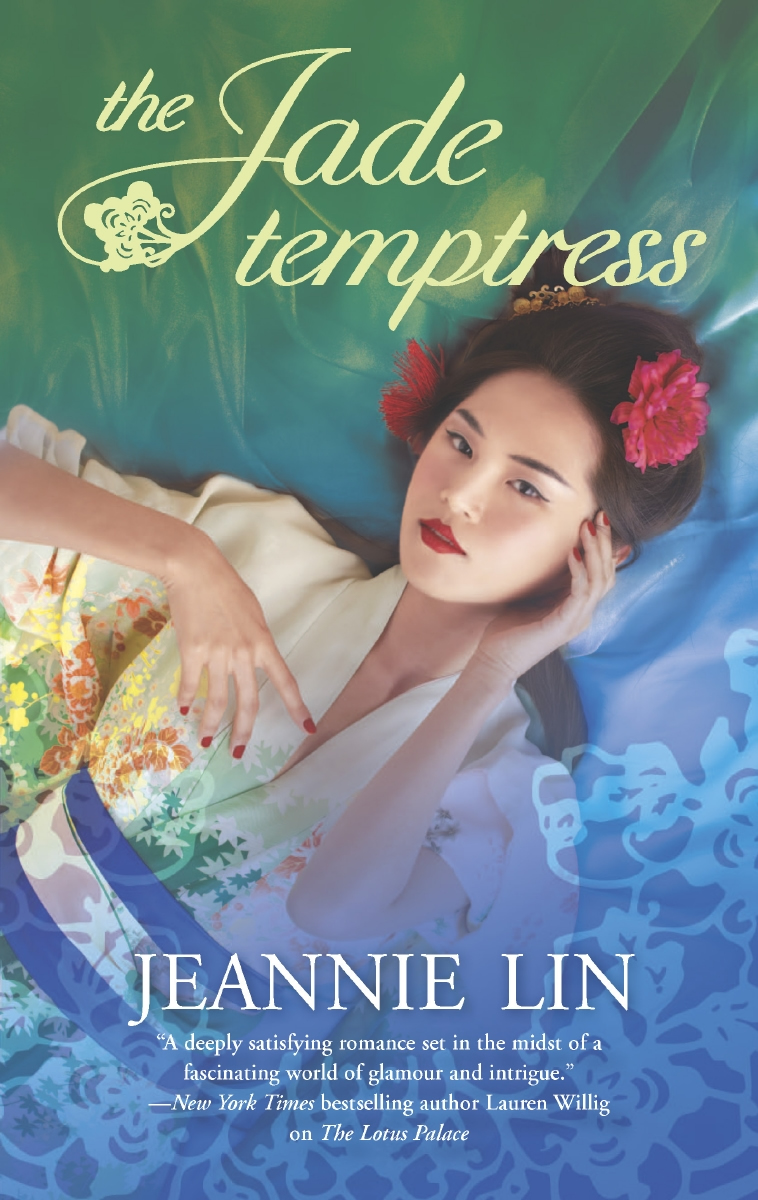
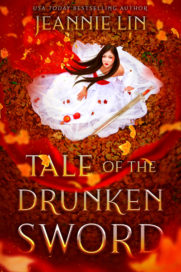
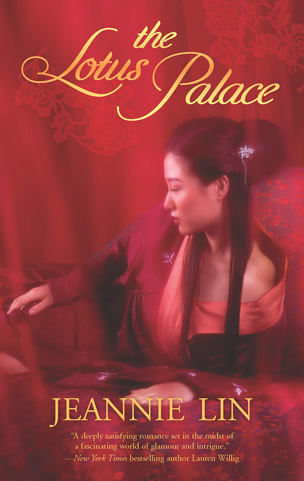



Aug 01, 2013 @ 07:03:46
Hi Jeannie,
The problem of the HEA is a consideration when writing a historical in an unusual time period. A HEA for one culture is not the same as it is for another. I think this may be one reason why some historicals written in certain time periods (for me the 1920’s and 1930’s) have had difficulty gaining traction. Everyone knows the Great Depression will happen for those characters down the road somewhere but for the typical “American-style” HEA you have to leave the characters in a good place so that the reader will be assured that they will be okay in times of hardship. The fact that they survive is not enough. I like the survival mode, but our reality is that a different type of HEA is the most difficult thing for audiences to buy into.
Aug 01, 2013 @ 07:14:16
Piper — I was reflecting upon your story as well as I wrote this. Wondering if people would insist that an HEA should just seem “harder” to come by for African-American people, especially in the Depression era. At the same time, people don’t necessarily read romance to face such adversity.
I wonder if readers actually feel HEA should be harder for Asians. Maybe not cognitively, but on a sub-conscious level. Maybe because it’s so much more common to see a tragic Asian love story than a happy one?
And in a larger sense, maybe this is why the historical romance genre at large has a harder time connecting with readers. Is this a more interesting path to go down when looking at why the genre is struggling? And the ones that continue to be popular, Eloisa James, Julia Quinn, etc. have a handle on a more “modern sensibility” either through setting, execution, or mere familiarity. Inquiring minds…
Aug 01, 2013 @ 07:52:47
I’m afraid my analysis is must simpler and more cynical. Happy endings, in literary establishment land, are inherently “unrealistic.” It has nothing to do with your setting or skill as a writer. But I disagree when you say romance had “trouble connecting.” We connect to the largest audience of any fiction. It’s the critics who have trouble connecting with what readers love!
Aug 01, 2013 @ 08:39:28
Thank you Blythe! A next thought would be: why in a genre where the HEA ending is inherently unrealistic, do certain historical periods seem to “get away with murder”, while authors like Marguerite Kaye and Susanna Fraser with interracial stories seem to be put under the microscope for having an unrealistic HEA? Is there something in the setup of these uncommon romances which is inherently challenging to reader expectations? Or critic expectations? 😉
Aug 01, 2013 @ 11:54:31
Frequently, the HEA is convincing even if unrealistic because the story has been set in a fairytale world, even when it’s not literally a fairytale à la Eloisa James. Historicals (and many contemporaries too) are populated by the wealthy, healthy and beautiful upper classes. Accuracy about all the details of title usage, clothing fabrics, table manners, etc. doesn’t make for gritty realism. Even when social problems are brought up, it is apt to be a way to make the understanding hero/heroine sympathetic. Readers can enjoy the HEA without a qualm, because everything is for the best in this best of all possible worlds.
When you get something like an interracial romance, however, it’s harder for readers to ignore the fact that they know this couple is going to face difficulties other people don’t have to worry about. Much as the readers may want to believe in the HEA, it’s harder for them to do so and so it’s harder for the author to be convincing.
I haven’t had any difficulty believing in the happy endings in your stories, which I have thoroughly enjoyed. If some people do, maybe you’ve been too successful in recreating the real world of Tang China, and people fear that HEAs are uncertain in the real world.
Aug 01, 2013 @ 16:06:15
Let me just say this (and it will appear during my review) to your question.
Short answer: Sort of.
Long answer: Not really.
Your HEA endings are only sort of unrealistic in the sense that they get wrapped up very quickly in a few pages, rather than say a chapter or two with an extreme climax.
In the long answers, it’s not unrealistic (dangit, double negative! forgive me!!!) because you actually addressed every part of the conflict that kept the H/h apart. There were no plot holes, or random resolutions like she was suddenly discovered to be the illegitimate daughter of some wealthy lord, or suddenly inherited wealth from some kind aunt/uncle/benefactor. It’s all been hinted at and therefore, the H/h were able to resolve the differences and problems and have their HEA. If you had more page numbers, you probably would be able to expand on the wrapping up more to certain people’s liking, but it worked just fine the way it was.
Plus, I like your endings much better than some of those novels with the crazy epilogues of the happy couple with 3 kids and one more in the oven and a grand house with dogs and whatnot.
I mean, if people are able to accept vampires, werewolves and all sorts of creatures popping out human-hybrid babies, why would the HEA in a Tang Dynasty be that unrealistic where people in love uses their intelligence to find a way together?
For another reference, there was the Chinese folklore story about The Youngest Head of the Family, where the father of a wealthy family met a young poor peasant girl and found her to be so intelligent, he married her to his young son and made her the head of the family, above the older brothers and the brother’s wives… The young husband also never took any concubines and she was able to save the family from corrupt magistrates. I’ll find the source and post it here later on.
I personally think a lot of it is the critics expectation or personal biases. Despite the idea of concubines and all that, the Asian culture remains much as much a mystery as those Billionaire Greeks, or wealthy Sheiks…if it doesn’t fit the common idea, it would seem odd. And again, the vampires, werewolves, magics, telepaths. etc. etc. all found HEA.
Aug 01, 2013 @ 17:54:41
I just wanted to say that this post is one of the reasons I love you.
Aug 01, 2013 @ 20:54:54
Lil – I really like how you put that. You made me see how it wasn’t just familiar vs. unfamiliar, but just how and when readers are willing to suspend disbelief. Also that the call for historical accuracy in romance can actually backfire. Yes, you may have a more detailed and atmospheric story, but then readers don’t get swept away in the fantasy as much. Thank you so much for adding to the conversation!
Aug 01, 2013 @ 21:08:34
Alice – I’d love to see that story!
I think something that people don’t realize is that though Chinese culture is known for being male dominated, this actually meant women had some degree of social mobility. Women were taught to be well-mannered and disciplined and to be good wives. Yes, on one hand that seems to indicate that women were looked down upon, but within that is the idea that a woman’s worth was based on her behavior and not solely on her birth. A woman who was born a commoner could still marry up if she had the right qualities to recommend her. Sure it might not have been common to climb socially and I’m sure noblemen commonly married noblewomen, just like everywhere else. But the stories act like instructional tales. Be diligent, dutiful, clever, industrious. Bring good fortune to your family and your husband and you can rise above.
Plus a singsong girl could marry a scholar because it was really his reputation and his name that established the family’s worth. Upon marriage, she became defined by her relationship as a wife to her husband and not by her past. Demeaning, but also liberating in a way. It’s a tough concept to wrap one’s head around for certain.
Aug 01, 2013 @ 21:09:05
*blushes* Thank you February.
Aug 01, 2013 @ 23:41:00
Jeannie – There are several versions. The one I have at hand is called The Young Head of the Family, from Kwangtung, China. It’s in a book called “Fearless Girls, Wise Women & Beloved Sisters” collected by Kathleen Ragan. Awesome collection of world’s fairtales/folklores about/by women. 😀 This version was short and wasn’t too bad, but I’ve heard a better version. Except, it was an oral story and I don’t know how to track the source…the storyteller past away.
I totally agree with you on your points (again, your research is so thorough and great!). I think people also forget that what is presented to the world isn’t always reality. Just because the written world of China seemed all oppressive to women and not give them any freedoms doesn’t mean that women doesn’t find ways around it. Just like you said, women’s reputations ends up being based on her husband so even if she was awesome strong, she wouldn’t show it to the world, only her husband/family. Plus, I think people also forget that times change. My great-grandmothers were forces to be reckoned with. It kind of changed with time and I’ve seen the changes so again, I totally agree with you.
Fun personal stories as examples:
A story my grandmother loved to tell us was that my great-grandma (her mother in law) was extremely strict with my grandfather. One time, my grandfather got punished for doing something bad. My great-grandfather (grandpa’s dad) wouldn’t dare say anything the entire time. It was only afterwards, great-grandpa held onto grandpa and was crying that his son got punished…and my grandfather didn’t even know what was going on because it wasn’t like a real real punishment.
I always thought it was pretty funny.